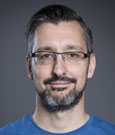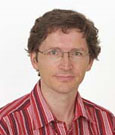
Renato Alves
EMBL Heidelberg
Germany
EMBL Course
Computation is an integral part of today’s research as data has grown too large or too complex to be analysed by hand. An ever-growing fraction of science is performed computationally and many wet-lab biologists spend part of their time on the computer. Many scientists struggle with this aspect of research as they have not been properly trained in the necessary set of skills. The result is that too much time is spent using inefficient tools when progress could be faster. This course provides training in several key tools, with a focus on good development practices that encourage efficient and reproducible research computing.
This is a course for researchers in the life sciences who are using computers or computing clusters for their analyses, even if not full time. The target student is familiar with some command line/programmatic computer usage, and wants to become more confident using these tools efficiently and reproducibly.
If you have written a for loop in some language before, but do not know what Git is (or at least are not very comfortable using it), you may be the perfect fit for this workshop.
After the workshop, participants will be able to:

EMBL Heidelberg
Germany

Max Planck Institute for Biological Cybernetics,
Germany

The Carpentries,
USA

EMBL Heidelberg,
Germany

EMBL Heidelberg,
Germany

EMBL Heidelberg
Germany

EMBL Heidelberg,
Germany

EMBL Heidelberg,
Germany

The Alan Turing Institute,
UK

EMBL Heidelberg,
Germany

DKFZ Heidelberg,
Germany

EMBL Heidelberg,
Germany

EMBL Heidelberg
Germany

The Carpentries,
USA

EMBL Heidelberg
Germany

EMBL Heidelberg
Germany
Date: 19 - 23 Oct 2020
Location: Virtual